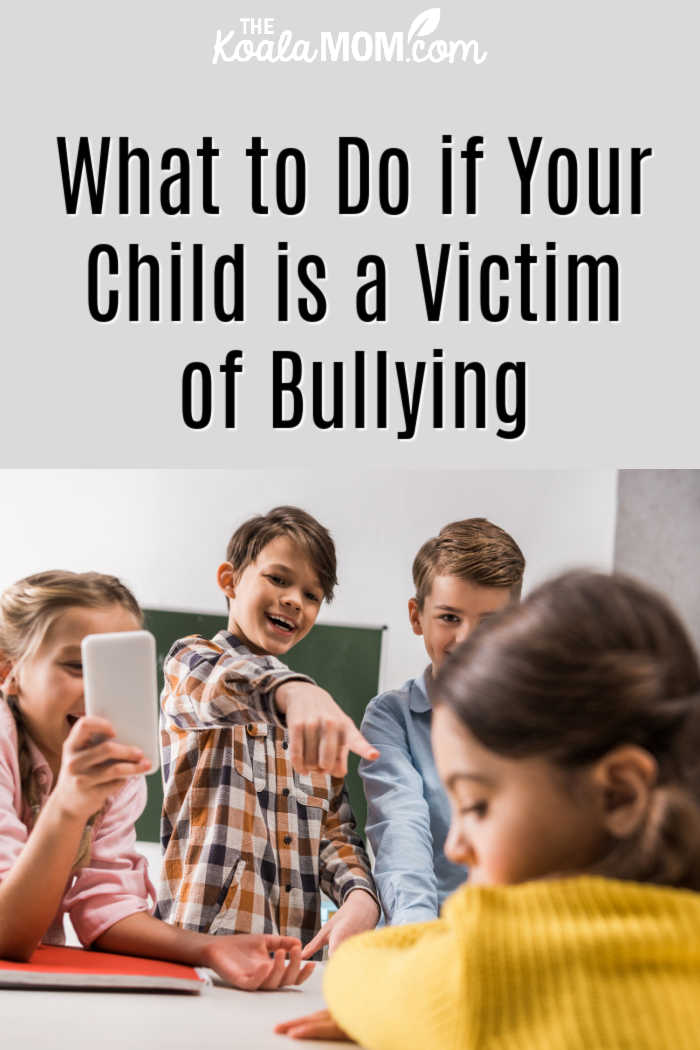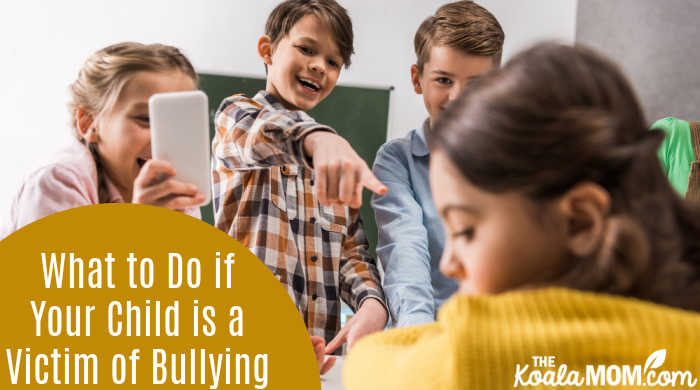Bullying is a serious problem that affects millions of children every year. In the US, about 1 in 5 students between ages of 12 and 18 experience some form of bullying. It can cause significant emotional and psychological harm, and in some cases, physical harm as well. Bullying can take many forms and it can be difficult for parents to navigate their options when their child is a victim. As parents, it’s important to identify signs of bullying, understand our children’s rights, know what steps to take if they are a victim of bullying, and how to emotionally support them during this period.

Recognize the Signs of Bullying
Many children struggle to report bullying and suffer in silence. Children have shared concerns of shame and retaliation or may not even recognize that they’re being bullied. This is why the first step in dealing with bullying is to recognize signs.
Children who are being bullied may be withdrawn, anxious, or have a sudden change in behavior. They may also have unexplained bruises or injuries. If you suspect your child is being bullied, it’s important to talk to them about it and offer support.
Common Signs of Bullying:
- lost or destroyed personal items such as clothes or electronics
- frequent headaches, stomach aches, or faking illnesses
- trouble sleeping or frequent nightmares
- behavioral regressions such as bedwetting
- withdrawal from close friends and family
- decrease in self-esteem
- drop in academic performance, loss of interest in schoolwork, or not wanting to go to school.
Notify the School
Once you’ve identified the problem, it’s time to take action. One of the most practical things you can do is to notify your child’s school. Every state has laws that require schools to have policies in place to address bullying, and schools are required to take action to stop bullying when it is reported.
Make sure you document any incidents of bullying, including the date, time, location, and any witnesses. Take photos of any injuries your child may have sustained, and gather any physical evidence. Parents should consider keeping a journal of bullying incidents and track a timeline of events.
Explore Legal Rights
It’s also important to understand your and your child’s legal rights. In some cases, bullying may be considered harassment, which is illegal under federal and state law. Every state is required to have legislation to prevent bullying, and most states require school districts and schools to implement an anti-bullying policy to investigate and respond when bullying occurs.
If the school fails to respond appropriately, they may be held liable for their negligence, according to DRZ Law. Holding institutions accountable for bullying is an important step in protecting your child’s rights and ensuring that they receive the support they need to overcome the effects of bullying and seek justice. To figure out the best course of action, you should research the laws in your state or get help from a lawyer that can assist you in the process.
Bullying may also happen to your child outside of school. For example, children may be bullied in playgrounds or online as well as at school. In that case, you’ll need a different approach to the bullying as you cannot work with the school to prevent it. Your child may be able to avoid the location of bullying. Or you may be able to work with online organizations or lawyers to address the bullying.
Support Your Child Emotionally
Another important step is to talk to your child about how to respond to bullying. Encourage them to stand up for themselves and assert their boundaries. Teach them to say “stop” or “no” in a firm voice, and to walk away from the situation if possible. Encourage them to speak up to an adult if they witness bullying. Parents should maintain honest and open communication with their child. If a child discloses bullying, listen attentively and act with empathy. Remind them that they have the right to feel safe and respected.
There are numerous books on the topic of bullying and how to address it, both fiction and nonfiction. Consider visiting your local library and asking the librarian what resources they’d suggest. Reading these books with your child can give you both a way to discuss what you’re learning and what is going on in your child’s life.
It’s also important to teach your child empathy and kindness. Help them understand that everyone is different and that it’s important to treat others with respect and compassion. Encourage them to reach out to other children who may be experiencing bullying and offer support.
Seek Professional Support
In addition to notifying the school, you may want to consider counseling or therapy for your child. Bullying can have long-lasting emotional effects, and it’s important to get your child the help they need to process their feelings and move forward. The sooner these issues are addressed the better.
Professional guidance provides a safe space for a child to process feelings and develop coping strategies after bullying. Child psychologist services offer tailored support for rebuilding self-worth and managing anxiety. When considering this step, involve your child in the process of selecting a professional who has experience with bullying-related trauma. Therapy won’t benefit a child who is opposed to the idea.
You can obtain referrals through your child’s school, pediatrician, or insurance provider to connect with the right support for building long-term resilience. Additionally, some families may qualify for subsidized or free services through government grants or public mental health initiatives. You may also be able to claim therapy on your extended health benefits (review their requirements for this before hiring a therapist, as some benefits will only cover services offered by a psychologist).
Be Forgiving to Yourself
Finally, it’s important to take care of yourself as a parent. Dealing with bullying of your child can be emotionally exhausting and it’s important to have a support system in place. It’s easy to place undeserved blame on yourself for not responding quick enough or responding in the wrong way. Treat yourself with the same understanding that you would give your child. Don’t be afraid to reach out to other parents, family members, or a therapist for support.

Bullying is a serious issue that requires prompt action. By understanding your child’s rights, documenting incidents of bullying, and seeking support, you can help your child overcome this challenge and move forward in a positive way.
Photo credit: Depositphotos.

No Responses Yet